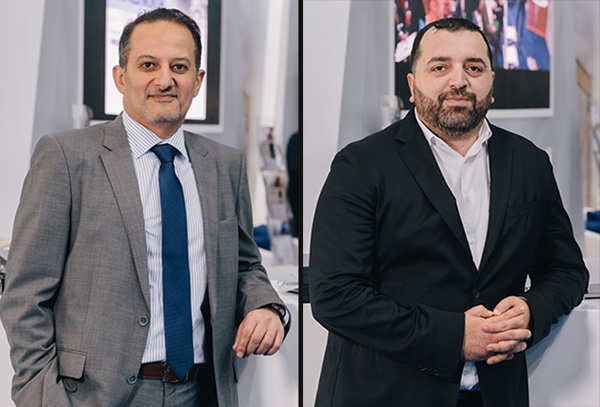
IEC Telecom Group along with its strategic partners – Thuraya, Intellian and Yahclick provided ADIPEC 2019 visitors with a ‘one-stop-shop’ for their satcom enquiries to support the increasing demand for real-time communication across the Middle East’s energy sector. Visitors to ADIPEC were provided with 360-degree consultations on how to deploy the latest satellite technologies to help gain the competitive edge.
“Digital technologies are helping almost every industry rewrite its operating landscape, and the oil and gas industry can no longer remain behind. 2020 will be an important year for Middle East energy companies to accelerate their digital transformation and further adoption of new solutions can help businesses stay sustainable and competitive. According to Wood Mackenzie, the industry can save up to $73bn within five years in exploration and production by adopting the latest technologies,” commented Nabil Ben Soussia, Vice President – Maritime, IEC Telecom Group.
BP’s 2019 Energy Outlook reports the Middle East as the largest oil-producing region and the second-largest gas producer, with 36% of global oil and 20% of gas output. At the same time, a lot of exploration sites are based in areas where telecommunication infrastructures are often unreliable or unavailable. Moreover, the constant change in locations and the challenging site conditions mean that implementing terrestrial communications can be both costly and impractical.
Studies indicate that between now and 2025, digital transformation in the oil and gas industry could unlock approximately $1.6tn of value for the industry, its customers and wider society. According to IDC, the Internet of Things will continue to grow by 81% to USD12.6bn by 2021. This growth will continue to facilitate improved crew communications, online access and seamless operational performance creating new opportunities for the Middle East’s energy sector.
In this backdrop and to meet changing customer needs at ADIPEC 2019, IEC Telcom demonstrated its latest OneGate Energy, designed as a land-deployed variation of its unique solution OneGate, to meet the requirements of remote units. OneGate provides access to a virtual platform to store critical applications. The solution also enables technical teams to maintain, update and upgrade onside infrastructure remotely, saving time and money on logistics. OneGate also separates the corporate environment from staff network. Such segregation ensures that e-operations and classified data remain safe eliminating cyber threats. OneGate addresses all major challenges of the oil and gas industry including logistics, cybersecurity and optimising connectivity.
IEC Telecom’s strategic partners also revealed some of their latest solutions.
Thuraya demonstrated its latest affordable voice terminal, Thuraya MarineStar that was for the first time presented to the Middle East market. MarineStar provides flawless voice communications with tracking and monitoring across the world’s busiest sea routes and fishing hotspots. It enables satellite calls to landlines, mobile phones and other satellite phones and can also connect to a standard analogue phone as an extension or an on-board PBX.
“Thuraya MarineStar represents a new and important chapter in Thuraya’s maritime portfolio. With more than 300K small vessels expected to benefit from the service, we are looking forward to working with our distribution partners to roll out Thuraya MarineStar worldwide and benefit from strong potential demand from users for this game-changing solution,” commented Shawkat Ahmed, Chief Commercial Officer of Thuraya.
In addition to this, Thuraya also showcased its bespoke Thuraya VSAT+ service, allowing users to rely on one service for all their maritime communication needs. It delivers Ku-band VSAT and Thuraya L-band services over major regional merchant shipping routes, offshore regions and coastal marine areas.
ADIPEC visitors also had the opportunity to meet with leading satellite antenna manufacturer Intellian and find out about the unique features of its new NX Series antennas and see the sophisticated new v85NX for the first time in the Middle East. NX Series antennas make VSAT easier, faster and stronger by introducing important new features. Uniquely, all NX Series antennas can work on Ka- or Ku-band frequencies and can operate with satellites in any orbit with a simple upgrade kit. This is very significant, as it means that Middle East offshore service companies can benefit from future-proof performance on Geostationary satellite beams right now, while being ready for new services in the future.
Together with its strategic satellite broadband partner Yahclick, IEC Telecom also demonstrated its robust IEC Welfare Solution, specifically designed to provide on-demand data access for team members and third-party contractors at onshore and offshore oil and gas facilities, as well as at remote sites across other industries such as the construction one for instance.
Samer Bazyan, VP Sales Middle East and North Africa at YahClick commented: “IEC Welfare offers uninterrupted and cost-effective connectivity thanks to YahClick’s use of the efficiencies provided by High Throughput Satellite (HTS) technologies over the Ka-Band. This is particularly relevant with the demand for satellite ka bandwidth continuing to grow year-on-year in the UAE by 10%, and for welfare by 40%.”












Add Comment